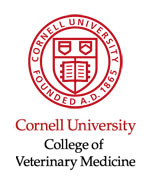 |
|
 |
|
 |
|
 |
|
 |
|
 |
|
 |
|
 |
|
 |
|
 |
|
 |
| Home/News | News
Archive | IUCN 2003 World Parks Congress
AHEAD Launch Forum AHEAD Working Groups Great Limpopo Transfrontier Conservation Area | Kavango-Zambezi (KAZA) | Great Apes | Zambia | Namibia KAZA TFCA Animal Health Sub-Working Group AHEAD on the Radio | AHEAD Webcasts | AHEAD Podcasts | AHEAD in Print | SADC-AHEAD Guidelines on CBT | FMD Bulletin | Links 2024 KAZA Disease Risk Assessment Fencing Analysis [PDF] | 2022 Namibia MAWLR-MEFT Workshop | 2019 Ngamiland CBT Gap Analysis Workshop 2018 Botswana DVS Workshop | 2017 DVS-AHEAD Maun Workshop | 2016 KAZA-AHEAD-FAO Workshop Phakalane Declaration | 2012 SADC/AHEAD Phakalane Workshop | 2008 SADC Regional 'TFCAs & TADs' Forum SADC Regional Biodiversity Strategy | Pilanesberg Resolution | Manhattan Principles | Contact Copyright © 2004–2025 Cornell University College of Veterinary Medicine |